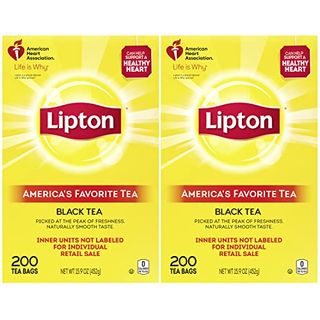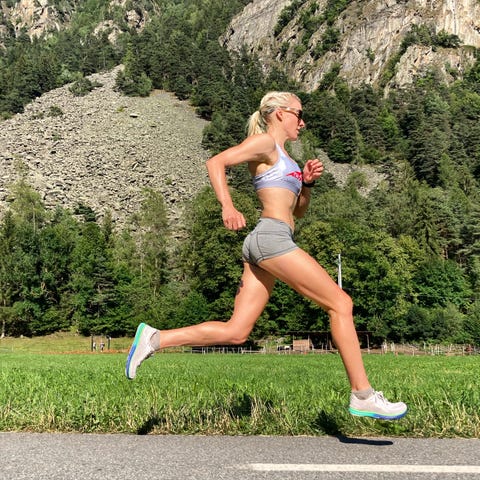Intermittent fasting may have tried to tarnish breakfast’s reputation as the most important meal of the day, but there are still plenty of reasons to start your morning with a bite to eat. Cardiologist Karol Watson, MD, shares arguably the most important one: “After not eating all night, most of us are hungry!”
Need another reason? An observational study published in the Journal of the American College of Cardiology found that adults who skipped breakfast had a higher risk of mortality from cardiovascular disease compared with those who ate in the a.m.
To get back to the breakfast table, Dr. Watson offers a refresher on foods that deserve a spot on your plate. Simple sugars do not, according to Dr. Watson; healthy carbs, proteins, and fats do. “Protein and fats keep us full,” she says. “Simple sugars make us hungry, because they cause insulin to spike,” she adds. That, in turn, causes a crash in blood sugar levels and increases the desire to eat.
Onto what to drink: Research has shown that green and black teas may have a significant protective effect against cardiovascular disease. And that’s not all. “Many studies have shown that moderate tea or coffee intake is associated with lower mortality,” Dr. Watson says. “It may be the flavonoids present.” (Flavonoids are naturally occurring compounds in tea that have been associated with heart health benefits.)
That gives you the gist. To get the specifics on what Dr. Watson—as well as a pro athlete and cardiac arrest survivor—eats for breakfast, keep reading.
Cardiologist: Karol Watson, MD
“I love yogurt (protein) with berries (carbohydrates) and nuts (protein and healthy fats),” Dr. Watson says. Sometimes she’ll swap her yogurt for a protein-packed egg. Other days she feels like eating meat, so she’ll have a turkey sausage patty with fruit on the side.
“I always try to have some protein,” she says. “I love fruit and they provide complex carbohydrates to fuel your body through the day. And healthy fats provide further energy and help speed up metabolism.”
To drink, Dr. Watson has a cup of black coffee. “We think adding milk or sugar blunts some of their benefits so that’s why I stick to black coffee,” she says. Note to the wise, the same may go for your morning cup of tea.
Pro Athlete: Meredith June Edwards
Meredith June Edwards, a mountain endurance athlete based in Durango, Colorado, competes in adventure sports you likely didn’t even know existed. “The one thing they have in common is they involve long days on the mountain,” she says.
She’s been a member of the U.S. National Ski Mountaineering (skimo) team—a sport that involves climbing a mountain in skis, then riding down it. And in 2016, she placed second in TDS, a 90-plus-mile foot race that starts in the mountains of Italy and ends in France.
When it comes to breakfast, Edwards is a creature of habit. She starts every morning with warm lemon water, then makes herself a big cup of green tea (she’s also known to bring a warm container of tea with her on races).
Looking for a heart-healthy cup of tea to add to your a.m. routine? Lipton unsweetened black and green teas each contain over 100 mg of flavonoids—compounds shown to reduce cardiovascular disease risk.
Next, she makes a bowl of applesauce (it’s packed with antioxidants, potassium, and energy-boosting carbs) with three tablespoons of hemp seeds, two tablespoons of chia seeds—each delivering a hefty dose of muscle-building protein—and a sprinkle of cinnamon. Protein-heavy and delish!
Cardiac Arrest Survivor: Meghan Roth
Meghan Roth, a runner based in the Minneapolis area, has been participating in marathons for over 13 years. She had a personal record at the Boston Marathon in 2019 with a 2:44, which qualified her for the 2020 U.S. Olympic Team Trials in Atlanta.
This year, while running that same race, Roth suffered from cardiac arrest. “I was cruising along, clicking off miles, when suddenly, at mile 7.4, everything went fuzzy like I was about to pass out,” she says. “The next thing I knew I was waking up in the ambulance.”
Roth spent five days in the hospital and underwent surgery to implant an ICD—a battery-operated defibrillator. She’s since gotten back to her training—cautiously, as her heart is still healing from the myocarditis—and is hoping to start training for races again soon.
Balanced eating plays a big role in both her training and recovery, says Roth, who loves to cook breakfast to share with her one-year-old son. She’ll often make (a protein-powerhouse) eggs with cheese and sausage. Then she tops hers with pumpkin seeds, avocado, and a ton of arugula or mixed greens sautéed in, all topped with salsa. (The added crunch and flavor appeal to her taste buds, while the antioxidants in the leafy greens help out her heart.) “Nutrition is as important as training is in making sure to fuel my body for performance, recovery, and my active healthy lifestyle,” she says.
This content is created and maintained by a third party, and imported onto this page to help users provide their email addresses. You may be able to find more information about this and similar content at piano.io





